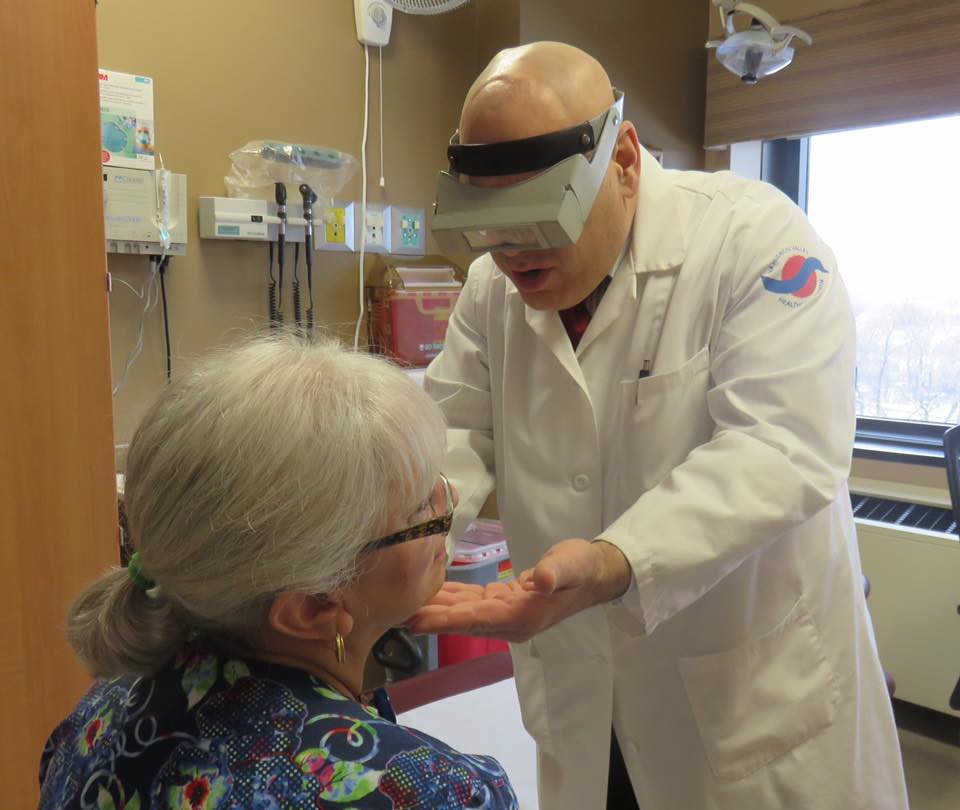At Penn State College of Medicine, dermatology residents and students from the Department of Industrial and Manufacturing Engineering are collaborating to develop a swift and accurate total body skin exam to spot and prevent skin cancer.
Jeffrey Miller, MD, chair of the Department of Dermatology, realized the need for a whole skin assessment procedure when he missed melanoma on a patient. The practice involves visually inspecting the patient over the entirety of their skin for potential cancers and is performed at every dermatology visit at Milton S. Hershey Medical Center, regardless of the purpose of the patient’s appointment.
Yet, implementing the total body skin exam wasn’t a perfect practice. There wasn’t a prescribed method for performing the exam, and each dermatologist might have their own unique technique, which could mean some parts of the body are overlooked or the process takes too long. To make the exam more streamlined and accurate, Dr. Miller decided to investigate how bioengineering principles could help.
Biomedical and industrial engineering students met with Dr. Miller on a weekly basis to develop a more effective total body skin exam. They watched videos of five dermatology faculty and five residents performing the exams on both a male and female patients. They analyzed all factors involved, including exam time, physician and patient movements, and the order in which body parts were inspected and if any were missed. Their assessment found that the underside of the neck and armpits were commonly missed and took that into account when creating the most practical and efficient procedure.
“If we can save one life from skin cancer because we are doing the exam consistently well, then we’ve succeeded,” said Dr. Miller.





